Happy Resurrection Day! Today is my favorite day of the year! May the early morning miracle of Jesus’ empty tomb shine hope, love, and a deep faith renewal into your soul.
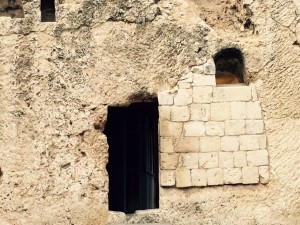
“The angel said to the women, ‘Do not be afraid, for I know that you are looking for Jesus, who was crucified. He is not here; He has risen, just as He said. Come and see the place where He lay. Then go quickly and tell His disciples; He has risen from the dead and is going ahead of you into Galilee. There you will see Him. Now I have told you.’ So the women hurried away from the tomb, with fear and great joy, and ran to tell His disciples.” –Matthew 28: 5-8
Isn’t it precious that two women found Jesus’ tomb empty and were empowered to tell the disciples the Good News? Women back then typically had no voice or place in society, yet were such an important part of Jesus’ ministry.
Like the women on Easter morning, Beloved, we may be afraid yet filled with joy to tell others about Jesus and what He means in our lives. Have courage. You have a voice to use it for His glory to tell this Good News and encourage others to strengthen their faith.
And even more, I am encouraged that Jesus will return. Prophetically, Zechariah 14:4 says Jesus as our Messiah will return on the Mount of Olives.
Zechariah 14:4 ESV–“On that day his feet shall stand on the Mount of Olives that lies before Jerusalem on the east, and the Mount of Olives shall be split in two from east to west by a very wide valley, so that one half of the Mount shall move northward, and the other half southward.”
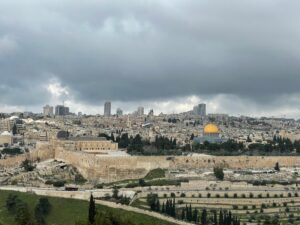
Photo taken in March 2023 on the Mount of Olives overlooking the Kidron Valley and Jerusalem.
Even the tectonic plates are aligned for the “split” to happen. Jesus is ready. The Bible is all Truth.
Also, Prophetically Jesus will enter Jerusalem through the Eastern Gate. Sitting in the Garden of Gethsemane overlooking the Kidron Valley, you can easily see this Gate and the Temple Mount, currently occupied as the Golden Dome of Islam. Ironically, years ago Muslims blocked the Eastern Gate years ago, so no one can walk through. By doing so they were fulfilling Biblical prophecy that only the Savior, the Prince of Peace, will walk through when He returns.
Ezekiel 44:1-3 ESV: “Then he brought me back to the outer gate of the sanctuary, which faces east. And it was shut. And the Lord said to me, “This gate shall remain shut; it shall not be opened, and no one shall enter by it, for the Lord, the God of Israel, has entered by it. Therefore it shall remain shut. Only the prince may sit in it to eat bread before the Lord. He shall enter by way of the vestibule of the gate, and shall go out by the same way.”
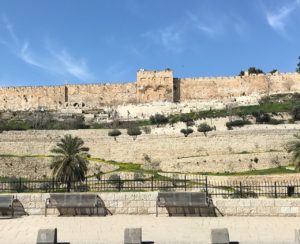
Isn’t it exciting to know our Redeemer Lives AND will return again for us. Be encouraged and let’s use our voice to proclaim the Goodness of Jesus Christ, our Lord and Savior. Christ is Risen!
I am reminded of the following story about using our voices to tell others about Jesus.
In the mid-1950s, the Rev. W.E. Sangster noticed a strange feeling in his throat and that his leg had begun to drag. He promptly went to visit his doctor. Rev. Sangster was diagnosed with an incurable disease that caused progressive muscle atrophy. His muscles would continue to waste away, including the muscles in his throat, and he would eventually be unable to swallow.
Knowing that his time was growing short, Rev. Sangster decided to use his time in writing for British home mission and in prayer. During this time, he wrote numerous articles and books, and organized prayer groups throughout England. His disease did progress. Eventually he was unable to talk, but he could hold a pen.
On Easter Sunday, just a few weeks before he died, he wrote a letter to his daughter. Barely able to control his pen, he wrote, “It is terrible to wake up on Easter morning and no voice to shout, ‘Christ is risen, indeed!’ But it would be still more terrible to have a voice and not want to shout.”
Amen.
Reflect:
–What does Easter mean to you? Please comment.
–How does today strengthen your faith and how will you use your voice to tell others?
Renew:
–“For what I received I passed on to you as of first importance: that Christ died for our sins according to the Scriptures, that He was buried, that He was raised on the third day according to the Scriptures, and that He appeared to Peter and then to the Twelve. After that, He appeared to more than 500 of the brothers at the same time, most of whom are still living, though some have fallen asleep.” –1 Corinthians 15: 3-6
–“But the fruit of the Spirit is love, joy, peace, patience, kindness, goodness, faithfulness, gentleness, and self-control. Against such things there is no law. Those who belong to Christ Jesus have crucified the sinful nature with its passions and desires. Since we live by the Spirit, let us keep in step with the Spirit.” –Galatians 5:22-25
Recharge:
–What will you do this week to spread the Good News? To bear fruit?






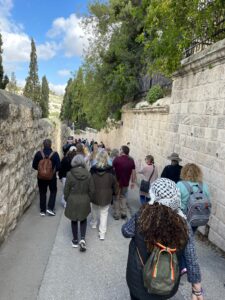
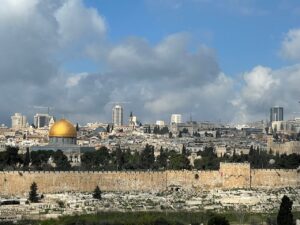
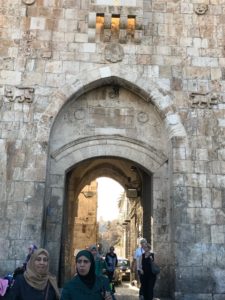

 Danya Jordan
Danya Jordan